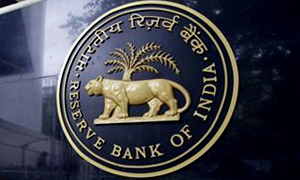Indian investors lead charge on Dubai realty
- 31st Mar 2015
- 2541
- 0

Indians are now officially the biggest foreign investors in Dubai’s fast growing property market encouraged by the higher returns, tax-free environment, affluent lifestyle and its proximity to India, writes RAJESH KULKARNI.
It’s official now. The Dubai land department has formally crowned Indians as the biggest foreign investors in Dubai’s burgeoning property market. A numero uno status ensured by huge investments to the tune of approx AED18.12 bn (INR 30,042cr approx) in 2014, which is almost equivalent to the annual budget of Mumbai’s municipal corporation and much larger than even the annual budgets of several small Indian states like Goa, Mizoram and Sikkim.
The amount is spectacular also because of the huge gap between us and British investors who came a distant second with transactions valued at AED 9.32bn, followed by Pakistan in third place with AED 7.5bn and Iran and Canada bringing up the rear with AED 4.5bn and AED3.15bn respectively.
For those who would like to put this in perspective, the total investments by the UAE in India over the last 14 years is less than half the amount that we invest in their property…every year.
Why Dubai?
So what is the lure of investing in Dubai’s real estate that compels Indians to rush there every year with their cheque books at the ready? According to industry experts like Haider Ali Khan, the CEO of Dubai-based real estate portal Bayut.com, it all boils down to sheer numbers. Indians by far are the largest expat population in the UAE, making up for an estimated 30 percent of Dubai’s population alone.
According to industry experts like Haider Ali Khan, the CEO of Dubai-based real estate portal Bayut.com, it all boils down to sheer numbers. Indians by far are the largest expat population in the UAE, making up for an estimated 30 percent of Dubai’s population alone.
A fact complemented by the impressive returns on investment in Dubai property which are in the region of between 20-30 percent. It is but natural that Indians feel comfortable investing in Dubai, which for many is like their second home, feels Khan.
He further adds that Dubai’s proximity to India is another key driver for the increasing number of property investments by Indian here, with many prominent investors preferring to flying in, select the property, sign the papers and fly back home the same day.
Moreover with a majority of leading developers back home struggling to offload unsold inventory, a fallout of high property prices, it makes sense for Indian investors to park their money in Dubai realty, where property prices are lower than comparable properties in India.
For example, the average price of a spacious apartment in a upscale Mumbai suburb today is in the region of about INR 5-7cr, whereas a lavish apartment or elegant villa in a comparable Dubai suburb carries a price tag of approx AED 2-3mn or between INR 3.5-5.2cr only.
A fact further substantiated by UK-based Knight Frank's Wealth Report 2015 which states that US$1mn (approx AED 3.67 mn) can buy an investor about 145 sq mtrs of prime property in Dubai as compared to only 96 sq mtrs in Mumbai.
With a slew of reasonably priced properties to choose from, Indian property investors are quite literally spoilt for choice at Dubai. The Burj Downtown area, Dubai Marina and Business Bay are the preferred areas for NRIs looking to buy property in the range of AED2-4mn, opines Kalpesh Sampat, the director of SPF Realty, a leading brokerage firm in Dubai.
Upcoming projects like Akoya (Damac Properties), Sobha Hartland - the US$4bn project at the upcoming MBR City by Bengaluru-based Sobha Developers and the more recent Millenium Square project at Meydan, are some of the other options being actively considered by Indian investors.
Dubai Expo 2020: The hosting of the prestigious World Expo in Dubai in 2020, is also being touted as one of the main drivers for the resurgence of real estate development activity here. Already a happening regional hug for matters related to finance, fashion, lifestyle and entertainment, winning the bid to host the Expo (the first to be held in the MENA & SA region) is being seen as a matter of huge pride for the city, which in turn is gearing up with several mega projects in prime locations to showcase itself as the perfect gateway to Asia, the Middle East and Africa.
The hosting of the prestigious World Expo in Dubai in 2020, is also being touted as one of the main drivers for the resurgence of real estate development activity here. Already a happening regional hug for matters related to finance, fashion, lifestyle and entertainment, winning the bid to host the Expo (the first to be held in the MENA & SA region) is being seen as a matter of huge pride for the city, which in turn is gearing up with several mega projects in prime locations to showcase itself as the perfect gateway to Asia, the Middle East and Africa.
Endorsing this trend, Sultan Butti Bin Merjen, the director general of the Dubai Land Department states that the increasing interest among foreign investors to buy a piece of the city’s realty is a clear indication of the Dubai’s sustained growth in the years leading up to the Expo in 2020. He further adds that despite the close competition with leading investment cities in the Asia-Pacific region, Dubai has emerged as the preferred realty investment destination in the Gulf region.
And it’s the numbers that add credibility to Merjen’s beliefs. In 2014, Dubai’s real estate sector witnessed foreign investment inflows amounting to approx AED 109 billion from more than 41,000 investors. What makes it all the more impressive is the fact that these numbers were achieved after the doubling of the property transfer fee to 4 percent of the property value vis-à-vis about AED 114bn in 2013 when the property transfer fee was pegged at 2 percent only.
Indians rule the roost:
As the largest non-Arab investors in Dubai’s realty (in terms of value and volumes) Indian investors have ploughed in approx AED 44bn in buying property here in the last three years, not forgetting the AED 18.1bn in 2014. The recent decision by the Reserve Bank of India (RBI), India’s central bank to increase the amount Indians can invest or spend abroad in foreign exchange without seeking its permission, has also come as a major incentive for buyers looking to invest in Dubai property. As per the new norms, Indians are now allowed to buy property abroad, hold shares/debt instruments/other assets, or purchase gifts up to a limit of US$2,50,000 (AED 9,17,500) per person per year under the Liberalised Remittance Scheme.
The recent decision by the Reserve Bank of India (RBI), India’s central bank to increase the amount Indians can invest or spend abroad in foreign exchange without seeking its permission, has also come as a major incentive for buyers looking to invest in Dubai property. As per the new norms, Indians are now allowed to buy property abroad, hold shares/debt instruments/other assets, or purchase gifts up to a limit of US$2,50,000 (AED 9,17,500) per person per year under the Liberalised Remittance Scheme.
For a middle-class Indian earning a salary here, it also makes sense to buy property as opposed to renting one, since the rents at Dubai are quite high, in the region of approx AED 80,000-100,000 for a decent 1BHK. Buying a home or apartment here therefore makes added sense with a spacious property in an upscale residential suburb carrying a price tag of about AED1mn.
A further bonus for the salaried desi buyer is Dubai’s strong rental market that ensures that even if he is transferred elsewhere or has to go back to India, his property in Dubai will continue to yield him/her good rentals that can cover the mortgage or generate a sound second income as the case may be.
Interestingly, a recent survey by an online property portal showed that a huge chunk of Indians living in Dubai have a preference for owning an apartment rather than a villa property. While about 83 percent of the people surveyed showed an interest in buying an apartment, only about 14 percent opted for a villa property, with another 2 percent settling for a townhouse.
In Summary:
With Dubai and other cities in the UAE practically a second home now for a majority of Indians staying and working there, buying a home for self-use or investment purposes makes perfect sense given that it’s cheaper to buy a home in Dubai now than say Mumbai.
The added lure of the emirate’s tax-free status, higher incomes, growing rental yields, promise of a better quality of life, an active social circuit and the opportunity to invest in a better lifestyle are just some of the added perks that have made it all the more irresistible in recent years.
For the UAE, the increasing interest in Dubai’s real estate couldn’t have come at a more opportune time. With the scars of the horrific 2008-2010 financial meltdown now a bad memory from the past, the slow but steady resurgence of its key realty sector post-2012 has signaled a reversal of its economic fortunes. With a slew of simply stunning big-ticket projects now under construction, Dubai is clearly serious about regaining its status as a haven for business and pleasure. With millions of tourists and business visitors expected to throng the city as part of the upcoming Expo 2020, this city of dreams is clearly well on its way to realize its dreams.
(all prices mentioned herein are purely indicative.)



Comments
Add Your Comment
Thank you, for commenting !!
Your comment is under moderation...
Keep reading other articles